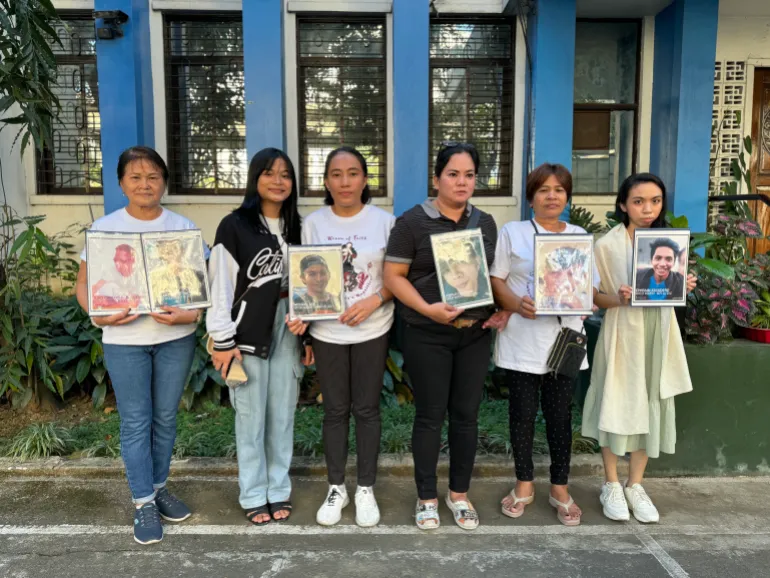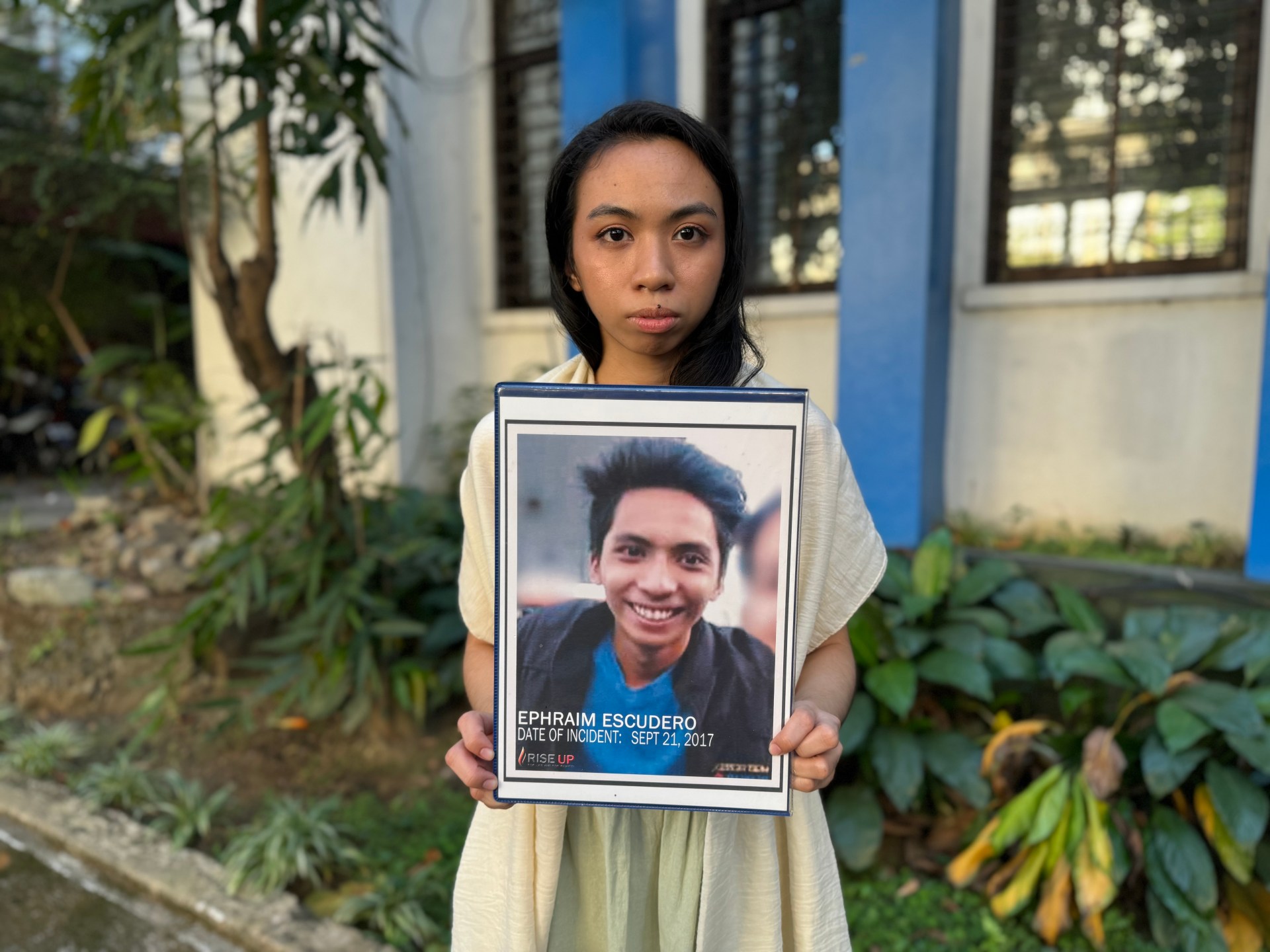Ephraim Escudero’s disappearance left his family in agonizing uncertainty for five harrowing days until a neighbor brought forth a news article. The grim revelation came from Pampanga, a province roughly five hours away from their home in Laguna, east of Manila. The details provided in the report left no doubt in the family’s mind. “It was Ephraim,” affirmed his sister, Sheerah.
Recalling the horrific scene, Sheerah described how her brother was found hogtied, hands bound behind his back, feet secured with plastic and packaging tape. Tragically, he bore the unmistakable signs of gunshot wounds. This was the cruel end to Ephraim’s mysterious disappearance in September 2017, a period during which local authorities exhibited little zeal in their investigation.
Despite initial inklings that Ephraim might have become a casualty of the drug war under then-President Rodrigo Duterte’s regime, the Escudero family’s efforts to engage authorities yielded little more than frustration. “They were just fooling around, pretending like they were investigating, but they’re really not,” lamented Escudero.
Seven years on, justice remains elusive. While there was a temporary decline in drug-related killings following their zenith in 2017, recent data from the Dahas project, led by the University of the Philippines, reveals a resurgence in such fatalities under the tenure of President Ferdinand Marcos Jr. The year 2023 saw 331 drug-related casualties, marking a troubling uptick from the previous year’s tally.

Families Left Behind Turn to ICC for Justice in Philippines’ Drug War (Credits: Al Jazeera)
Acknowledging the persistence of extrajudicial killings, Philippine National Police chief Benjamin Acorda Jr. offered assurances that these incidents were unintentional. However, skepticism persists, particularly in light of President Marcos’s staunch refusal to cooperate with International Criminal Court (ICC) investigators scrutinizing the Duterte-era killings.
For victims like Escudero, the ICC represents a final glimmer of hope for accountability. Yet, the prospects remain grim, with only a handful of prosecutions initiated since 2016, according to a report by the US Department of State. Marcos’s administration has notably neglected to extend meaningful support to affected families, leaving many feeling abandoned and disillusioned.
Jane Lee, who lost her husband to a police operation in 2017, echoed these sentiments. Despite initial hopes that Duterte’s anti-drug crusade would eradicate the scourge of narcotics, Lee’s optimism waned as innocent lives were claimed as “collateral damage.” The subsequent lack of government support compounded the anguish of families left bereaved by the drug war’s brutality.
Amidst the desolation, efforts to seek redress through domestic courts have proven futile. Christine Pascual’s quest for justice following her son’s killing in 2018 languished in legal limbo before ultimately being dismissed. The pending ICC investigation offers a glimmer of solace, albeit tinged with uncertainty.
The Marcos administration’s stance on the drug war remains ambiguous, prompting concerns that the cycle of violence will persist. Despite superficial pledges to prioritize rehabilitation, there is scant evidence of tangible progress. Joel Ariate, lead researcher of the Dahas project, warns that as long as the current punitive approach endures, the bloodshed will continue unabated.
Human rights organizations have decried Marcos’s failure to hold perpetrators accountable, but their pleas have fallen on deaf ears. Justice Secretary Jesus Crispin Remulla has adamantly rebuffed ICC intervention, denying allegations of impunity in the Philippines.
For families like the Escuderos, the ICC represents a beacon of hope amidst a sea of despair. With regional trials yielding little recourse, their faith in international justice remains steadfast. As Ephraim’s children grow older, they confront the harsh reality of their father’s untimely demise, symbolized by the makeshift placard bearing his smiling visage.
In the absence of closure, the quest for justice endures, fueled by the indomitable spirit of those left behind.
























